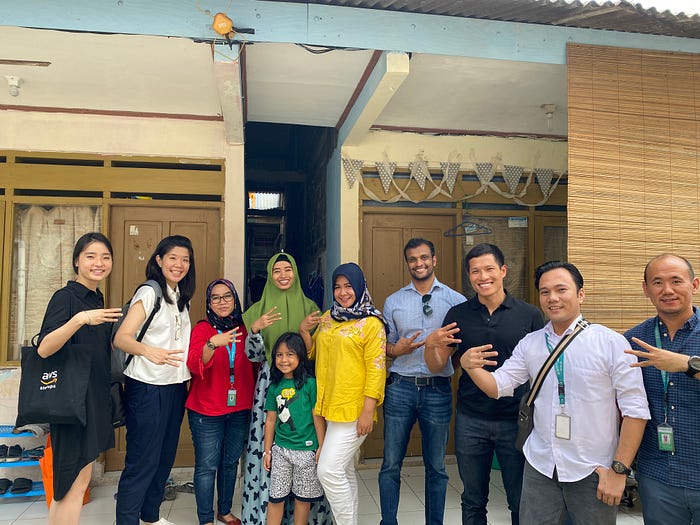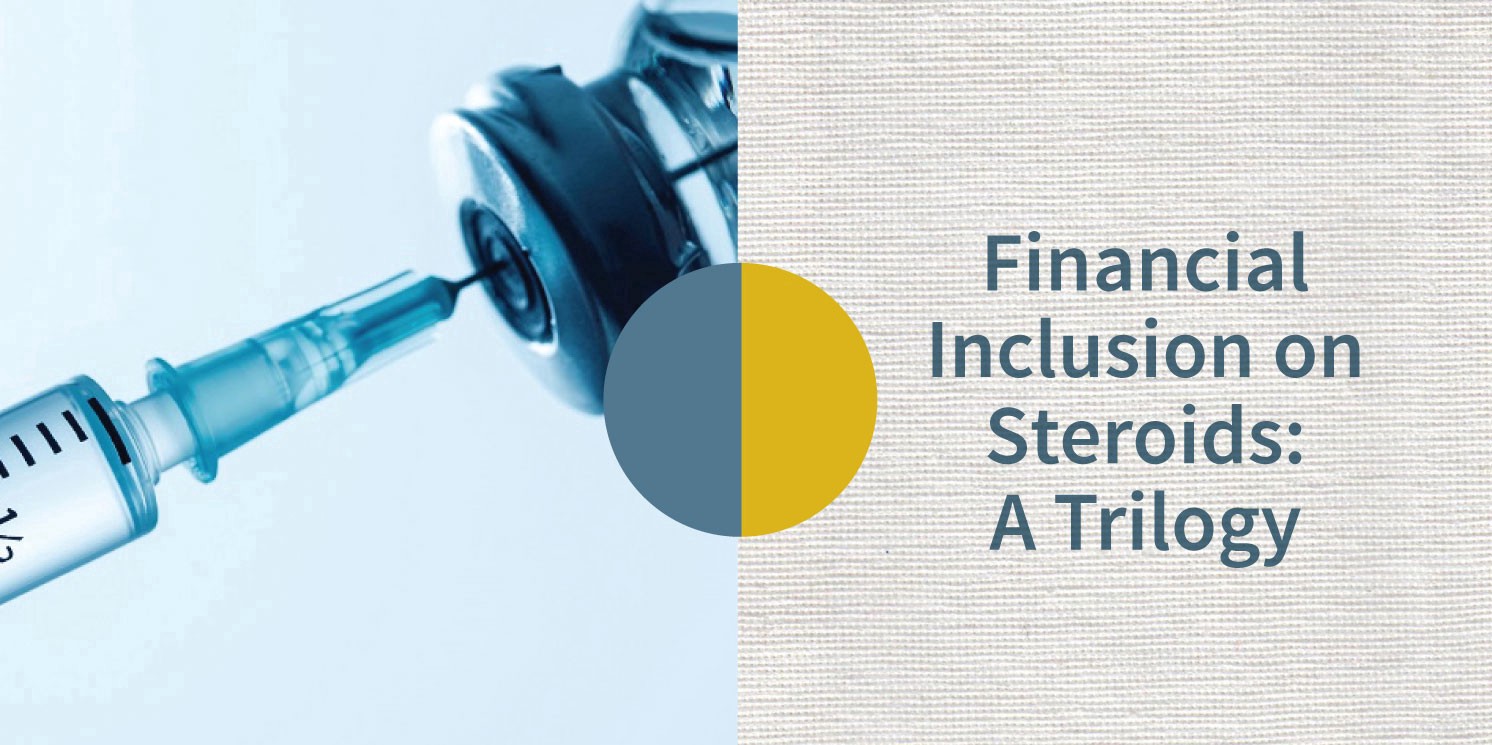No person left behind
Shanthi, a single mother who worked as a daily helper, was running out of time and options. She and her son, a day laborer, both lost their jobs a month ago due to the stringent lockdown imposed in India due to Covid-19. Shanthi’s savings were running low and she knew she couldn’t afford medication for her sick mother, nor did she have credentials to borrow from a bank. She had heard of a man in the city who would instantly lend money. The catch? A monthly interest of 20% (which means her borrowing will increase nine-fold by end of year). Having exhausted all other possible avenues, Shanthi decided to borrow money from the man with the hope that the lockdown would end soon enough for her to get back to her day job.
Just like Shanthi, it is estimated that over 1.7 billion adults globally don’t have access to a bank account due to many issues varying from lack of funds and physical access to education among others, making them more likely to fall prey to informal financial institutions and loan sharks charging exorbitant interest rates. This brings about the importance of creating a financially inclusive population across every country. Financial inclusion ensures that all segments of a population, from low-income earners to high-income earners, have equal opportunities to access formal financial products and services that allow them to live a fulfilling life. These products and services include savings accounts, loans, equity, and insurance among others.
Through its 10 years of being in existence, Patamar has remained passionate about providing better solutions to the issue of financial exclusion that it saw plague low-income earners.
This article illustrates 3 stories from the early 2000s to the present in which Patamar and its founders have been committed to taking low-income earners out of such financial troubles by promoting future-focused innovative solutions.
First to cross the IPO finish line

In 2000, Geoff (Chester) Woolley and a group of successful entrepreneurs in the finance and technology industries dreamed a grand vision: They wanted to alleviate global poverty using market-based solutions that empower the working poor. Unitus Inc. or “Unitus” was born out of that vision.
Shortly after being founded, the firm identified microfinance acceleration asits first formal project.
Since its rise in the late 20th century, the microfinance industry was looked upon to satisfy the unmet demand on a much larger scale and to empower people living in poverty by providing access to financial products. However, along-standing debate remains about the trade-off between the microfinance institution’s ability to scale and its sustainability after covering costs. Although thousands of micro-finance institutions (MFIs) existed throughout the world at that time, only a small number had reached significant scale. In fact, less than 10% of the world’s working poor had access to microfinance and almost all funding for MFIs came from philanthropic sources.
To combat this, Chester and his colleagues re-imagined a next generation of highly efficient and scalable MFIs that could attract investments from investors and other capital market participants. They believed that the involvement of capital markets would allow MFIs to achieve sustainable, long-term growth and, in turn, serve a significantly larger number of the working poor.
For the next decade, the firm pursued this goal by introducing a venture capital mindset to traditionally non-profit MFIs in India. This approach was later popularized by the company as the “Microfinance Accelerator Model”. Under this model, the firm created a first-of-its-kind, early-stage micro-finance equity fund. This helped MFIs dramatically scale operations, serve more low-income clients and successfully demonstrate that financial returns were possible in a space previously considered too risky and unproven.
By 2010, it was evident to the partners that Unitus’ original goals related to microfinance were being achieved.
- The Microfinance Accelerator Model helped its MFI partners grow at eight times the industry average and serve over 12 million low-income families.
- Investors were viewing the provision of financial services to underserved populations as a market rather than a purely philanthropic cause.
In 2010, Unitus led India’s largest microfinance institution with 5.8 million clients, becoming the first MFI in India to float its shares through an initial public offering.
Unitus had discovered a model that proved to be the catalyst that revolutionized the microfinance industry in India.
Go Big or Gojek
In 2010, only a few from the impact investing community showed any interest in investing in the Southeast Asian region. Patamar’s founders wished to highlight the opportunities available for investing in companies with a social impact in SE Asia. Hence, they brought together a syndicate of forward-thinking investors to invest in five companies that were working to increase incomes and improve the lives of the working poor in Southeast Asia and India.
At the same time, digital technology was emerging as a game-changing enabler across many industries and was beginning to create a similar impact in financial services across the west. In early 2011, Unitus redirected some of its key resources with the objectives of (i) creating and supporting livelihood opportunities in Southeast Asia and India, and (ii) backing tech entrepreneurs that could further accelerate growth of scalable market-based businesses to alleviate poverty. The result of that redirection was the renaming of Unitus Impact as Patamar Capital.
Within 3 years of its first investment in Southeast Asia, Patamar had to make a difficult (bittersweet) decision to part with one of its leading investments in Indonesia, Mapan:
Mapan was acquired by Gojek in 2014.

When Patamar first invested in Mapan, Indonesia’s venture capital market was at a nascent stage. The company provided an opportunity for Patamar’s founders to increase the industry reach by making the MFI model digital, making it an attractive option. Going digital meant that unlike the traditional MFI model, Mapan had the opportunity to scale exponentially with lower operational cost. Mapan helped Patamar reimagine building a new breed model based on MFIs that could create a significant impact with the speed of technology.
Today, fueled by Gojek’s investment, Mapan has over 100,000 economically empowered agents, 100+ branch offices, 1500+ employees across Java and Bali, and has impacted millions of low-income-earning families in Indonesia.
Since Patamar’s early investment, Mapan has not only built the largest niche e-commerce platform for low-income Indonesian communities with better access to valuable products and services, but has also increased financial literacy to have a lasting impact on changing the financial habits of Indonesian families.

The Race is on!
Today, South and Southeast Asia’s digital bank race is on! Singapore has already proved to be a trailblazer after announcing the winners of the highly contested ‘Singapore digital bank license’. These digital bank licenses will enable fintechs to move beyond the traditional ‘brick and mortar’ branches by providing banking services and operating their businesses almost exclusively online. Traditional MFIs are limited by their physical locations when trying to solve issues of the underserved credit market: It is challenging to scale the group lending concept while relying on operations/collections efforts by field officers. The digital model of new fintechs will reach a larger audience at lower cost.
However, even with the emergence of new fintech players, there is still a significant population in South and Southeast Asia that is underserved by current financial institutions. Most fintech companies today serve the top of the pyramid, utilizing technology to deliver credit and other financial products to the white-collar workforce and millennials. Why? Firstly, the top of the pyramid in South and Southeast Asia is still a largely untapped market for fintechs. Secondly, it is characterized by higher disposable income and, hence, larger ticket sizes. Thirdly and most importantly, this segment has lower credit risk so fintechs feel comparatively secure in providing products and services to them.
The time is ripe to reimagine economies where all working-class employees have access to capital and financial services. The next frontier for financial services is through digital channels, which is geared to deliver lower customer acquisition costs as well as better outreach.
Patamar believes that the market is ready to provide access to the underserved segments of South and Southeast Asia due to the following strong tailwinds:
- Widespread Internet coverage: More people have access to affordable smartphones and widespread internet coverage;
- The rapid development of the fintech market: Innovative fintech solutions, Government regulation, and the growing user base of payment platforms are paving the way to building reliable credit risk models;
- User engagement: Customer willingness to utilize their mobiles to access various goods and services;
- Greater inclusivity through a trend of tech platforms offering local languages provide greater access to financial and tech literacy.
Patamar is on the hunt for tech-entrepreneurs with innovative business models that can build unique capabilities to provide affordable financial services to the underserved segments.
The firm is ready to back the next disrupter(s) in the digital banking race in South and Southeast Asia.
Patamar is ready to reimagine again!
Taken from: medium.com

